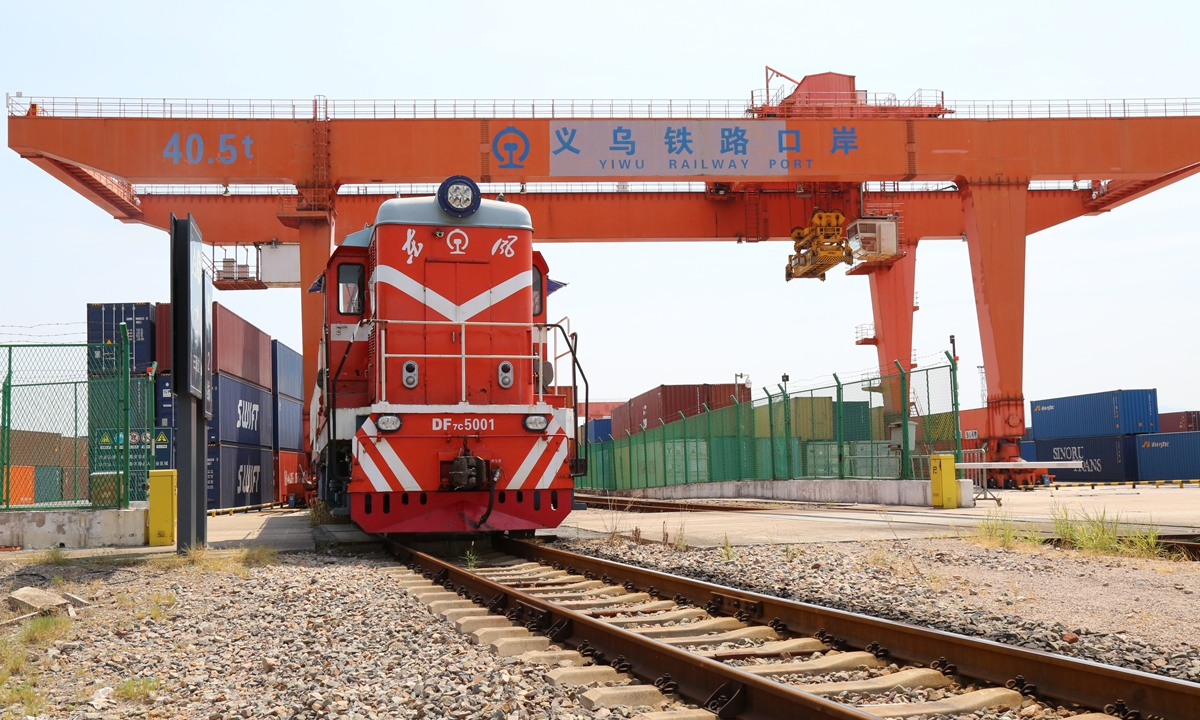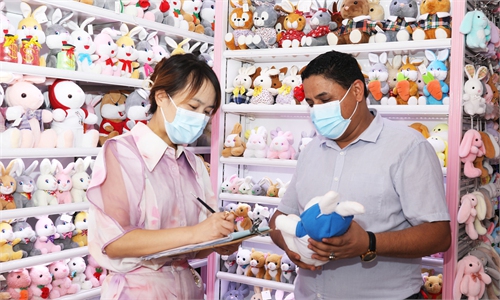
A China-Europe freight train departs from the Yiwu Railway Port and heads to Europe. Photo: Courtesy of Yiwu Customs
More and more Europeans are turning to Chinese sellers to purchase warming equipment as winter approaches and Europe faces a gap in energy supplies as a result of friction with Russia over the Ukraine crisis, according to media reports.
In the first eight months this year, Yiwu, a city in East China's Zhejiang Province that is also the world's largest wholesale market for small commodities, exported 190 million yuan ($26.5 million) worth of warming equipment such as air conditioners, heat pumps, water heaters and electric blankets, up 41.6 percent on a yearly basis, according to data provided by Yiwu customs to the Global Times on Tuesday.
Europe is a big purchaser of the warming equipment. A report by CCTV cited local sellers of electric blankets as saying that the company barely had orders from European customers in the past, but orders from Europe have started to flow in since May.
Yiwu Shanghao, an Yiwu-based newspaper, also cited a hot water bottle vendor in the Yiwu International Trade City as saying that European orders are particularly "hot" this year, as in the past the largest order was about 900,000 items, but this year one customer placed an order for 2 million.
She also noted that many European customers had placed additional orders as the weather turned colder, and therefore her shop's sales volume doubled this year compared with 2021.
European customers are importing Chinese warming products to help them cope with the winter chill as the region faces tight energy supplies after relations soured with Russia, their biggest supplier of natural gas, over the military conflict in Ukraine.
According to a Reuters report on Tuesday, Europe needs to "pray for a mild winter" and cut energy demand as deeper cuts to Russian supply and other incidents would "make power rationing or blackouts all but inevitable."
Nord Stream 1, Russia's largest gas pipeline to Europe, has been closed after a number of leaks were found in it, media reports noted.
The Reuters report also cited analysts as estimating that Europe's gas shortfall should stand at about 15 percent of average European demand in winter, meaning the region has to cut consumption to get through the peak heating season.


